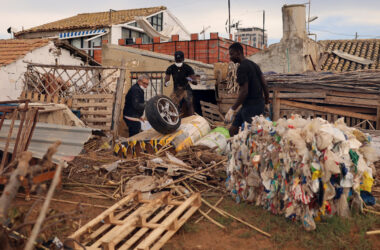Italy’s top court has thrown a wrench into the government’s push to reinforce traditional family values, ruling this week that the terms “mother” and “father” on identity cards must give way to the more neutral “parent 1” and “parent 2.”
The decision reignites a longstanding cultural tug-of-war over parental recognition in modern Italian families.
The Supreme Court of Cassation made the call after a same-sex female couple challenged the existing classification, arguing it inaccurately reflected their roles as parents and undermined their legal status. The court sided with the pair, saying that assigning the titles “mother” and “father” in cases where it doesn’t match biological reality could create confusion and discriminate against non-traditional families.
This legal shift marks a rollback of a 2019 policy introduced by then-Interior Minister Matteo Salvini, who reinstated the “mother/father” labels based on biological sex. That move had reversed a 2015 directive from former center-left Prime Minister Matteo Renzi, which had initially introduced the more inclusive “parent 1/parent 2” language.
Prime Minister Giorgia Meloni’s right-wing government had revived Salvini’s classification in 2023, vowing to preserve what they see as traditional Italian values. However, the recent ruling now mandates a return to the gender-neutral identifiers—at least for the time being.
Predictably, the ruling has divided Italy’s political arena. Alessandro Zan, a prominent MP from the left, hailed the verdict as a win for equality. “This dismantles the Right’s ideological crusade against rainbow families,” he declared.
Meanwhile, Rossano Sasso of the ruling Lega party slammed the court’s decision as a blow to Italian heritage and identity. “This isn’t just a legal issue. It’s a direct attack on our families, our culture, and our traditions,” he said.
For now, identity documents in Italy will once again reflect the reality of modern family structures—whether the political establishment likes it or not. And with tensions running high, the debate over what it means to be a family in 21st-century Italy is far from over.




